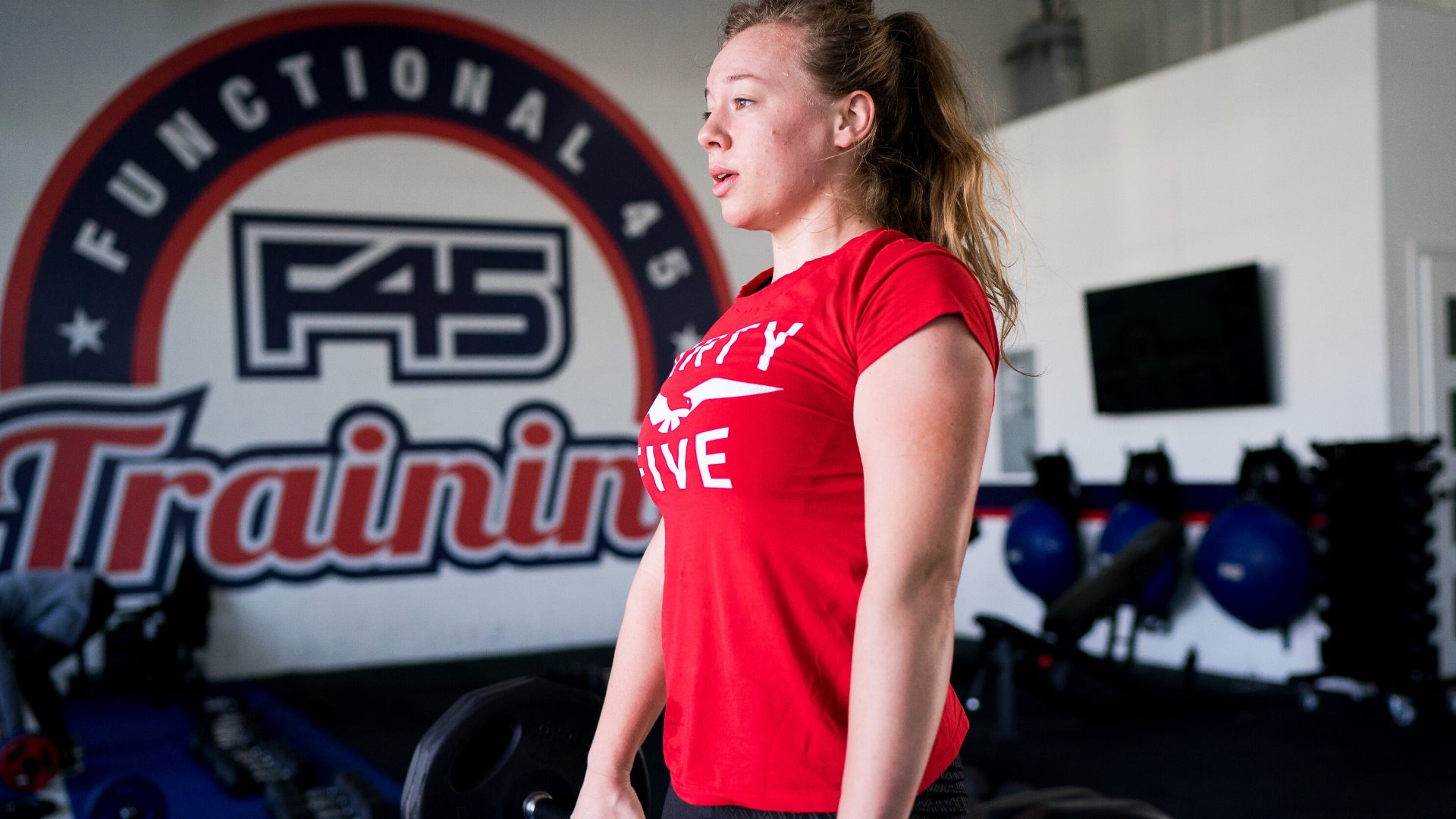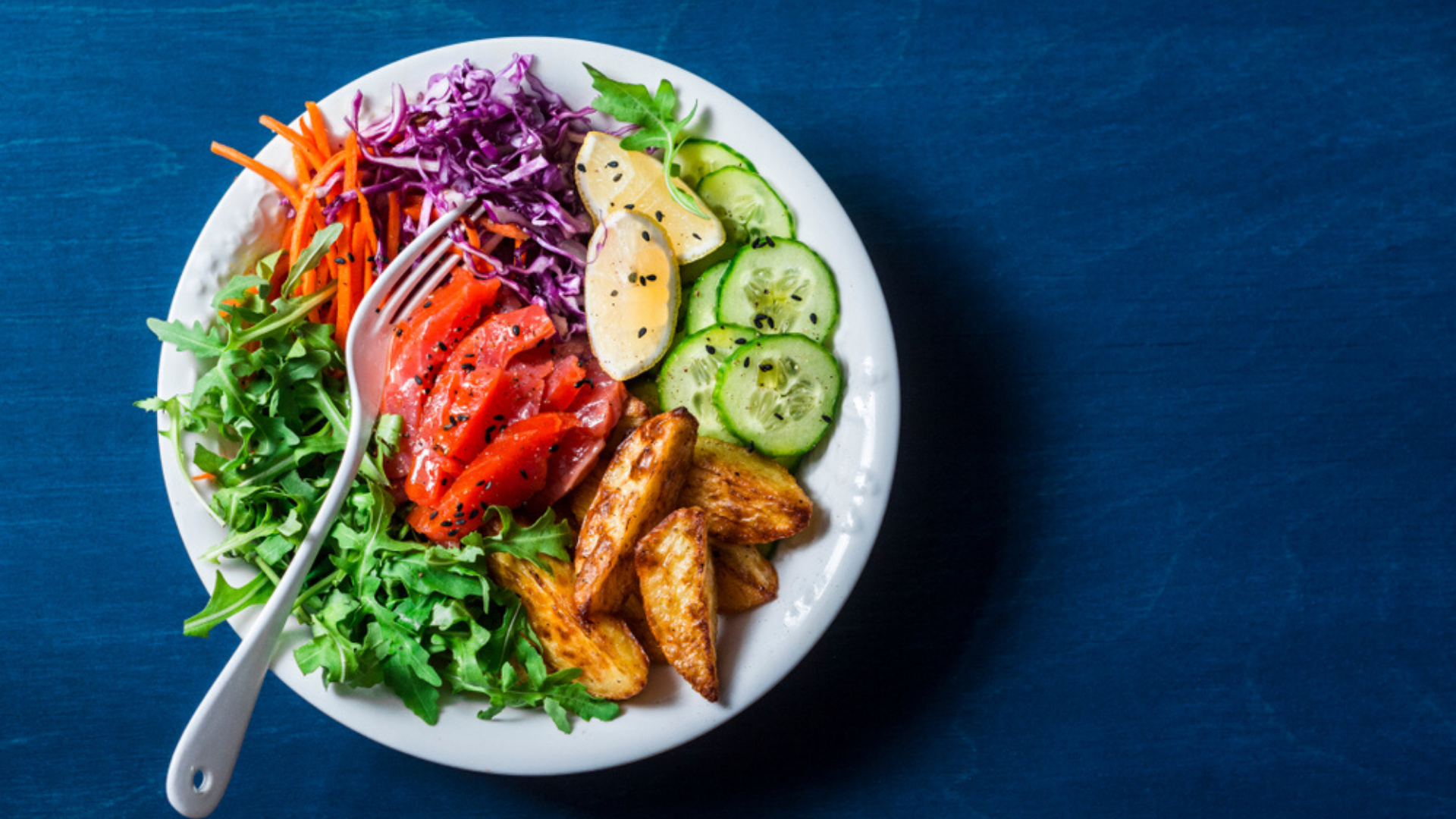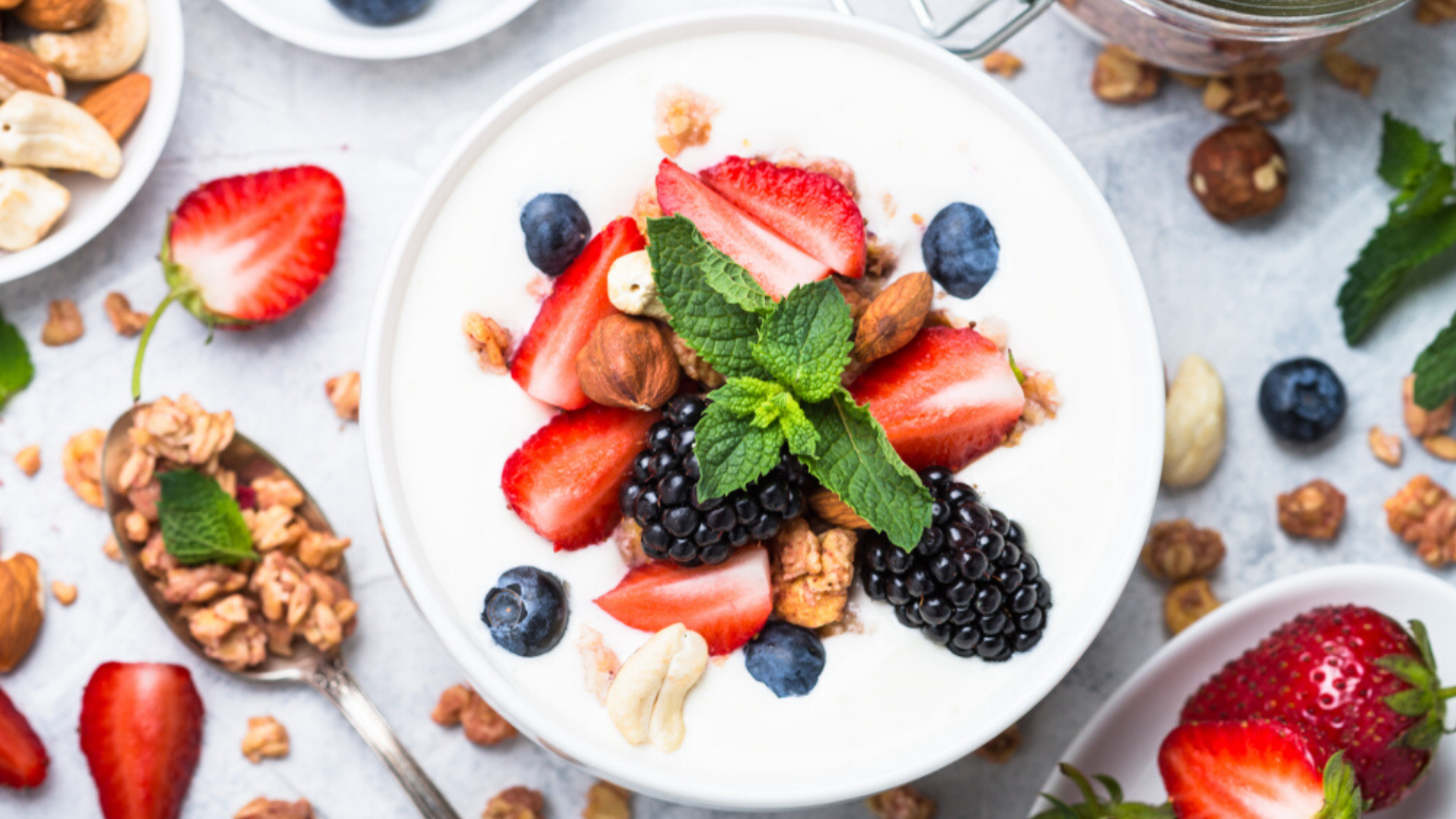What Determines Metabolic Efficiency? The Power of Food, Gut Health, and Probiotics

The key to success in a training program is not just how we perform during a workout, but how we take care of ourselves outside of our daily workouts. Sleep, stretching, and quality food choices are all essential to maximize health. Especially throughout this next phase of the F45 Challenge, prioritizing eating habits and sticking to quality foods will not only ensure we can recover properly from each workout, but will maximize the metabolic benefits that we obtain from training.
What is metabolism?
Our metabolism is the biochemical process in our body that converts what we eat and drink into energy. Your resting metabolic rate (RMR or BMR) is the number of calories your body requires for everyday function. Avoiding foods that slow metabolism is just as important as incorporating ones that maximize its efficiency. There are a number of foods that are difficult for our body to metabolize, including fried foods (potato chips) and refined sugars (soft drinks, baked goods), which typically get stored as fat. When we nourish our body with quality food—such as whole grains, lean sources of protein, vegetables and fruit—we can metabolize and store it more efficiently to be readily used as energy. In fact, poor nutrition can induce inflammation, which slows metabolism and ability to burn calories at a normal rate. High biomarkers of inflammation in the body can largely impact the available capacity of fat in fat cells, leading to a build-up in non-fat cells (including the liver).

The liver and metabolism
Fat distribution is a major determinant for metabolic homeostasis. However, excess consumption of processed foods and sugar can lead to a decreased capacity of fat storage in fat tissue, along with inflammation in the gut and liver. As a result, our body begins to store fat in the liver, pancreas, and kidneys instead. This poses a problem, as our liver is the major metabolic organ in the body involved in the metabolism of protein, carbohydrates and fats. It is also the primary source of detoxification in our body, meaning that it gets rid of toxins. A liver that is not fueled with quality nutrients cannot regulate fat metabolism to the best of its ability.
The influence of probiotics on metabolism
As we move into Phase 2 of Challenge, it’s important to optimize metabolic efficiency by fueling our body with quality foods that reduce inflammation. Our gut microbiome plays a key role in the ability of the liver to metabolize fat and support immune function for a healthy inflammatory response. Probiotics are essential for supporting a healthy gut microbiome and preventing ‘leaky gut syndrome.’ They keep our gut microbiome healthy by promoting a balance of healthy intestinal bacteria. Probiotics have also shown to preserve the ‘tight junctions’ proteins within the small intestine to protect the gut barrier. Incorporating probiotics on a regular basis can assist in preventing inflammation within the liver, promote a healthy gut microbiome, and an overall efficient metabolism.

For more information on gut health and probiotics please refer to the article All You Need to Know: How a Healthy Gut Boosts the Immune System.
References
Le Barz, M., Anhê, F. F., Varin, T. V., Desjardins, Y., Levy, E., Roy, D., Urdaci, M. C., & Marette, A. (2015). Probiotics as Complementary Treatment for Metabolic Disorders. Diabetes & metabolism journal, 39(4), 291–303. https://doi.org/10.4093/dmj.2015.39.4.291
Verboeket-van de Venne WP, Westerterp KR, Kester AD. Effect of the pattern of food intake on human energy metabolism. Br J Nutr. 1993;70(1):103-115. doi:10.1079/bjn19930108
Xue L, He J, Gao N, et al. Probiotics may delay the progression of nonalcoholic fatty liver disease by restoring the gut microbiota structure and improving intestinal endotoxemia. Sci Rep 2017;7: 45176. doi: 10.1038/srep45176.
